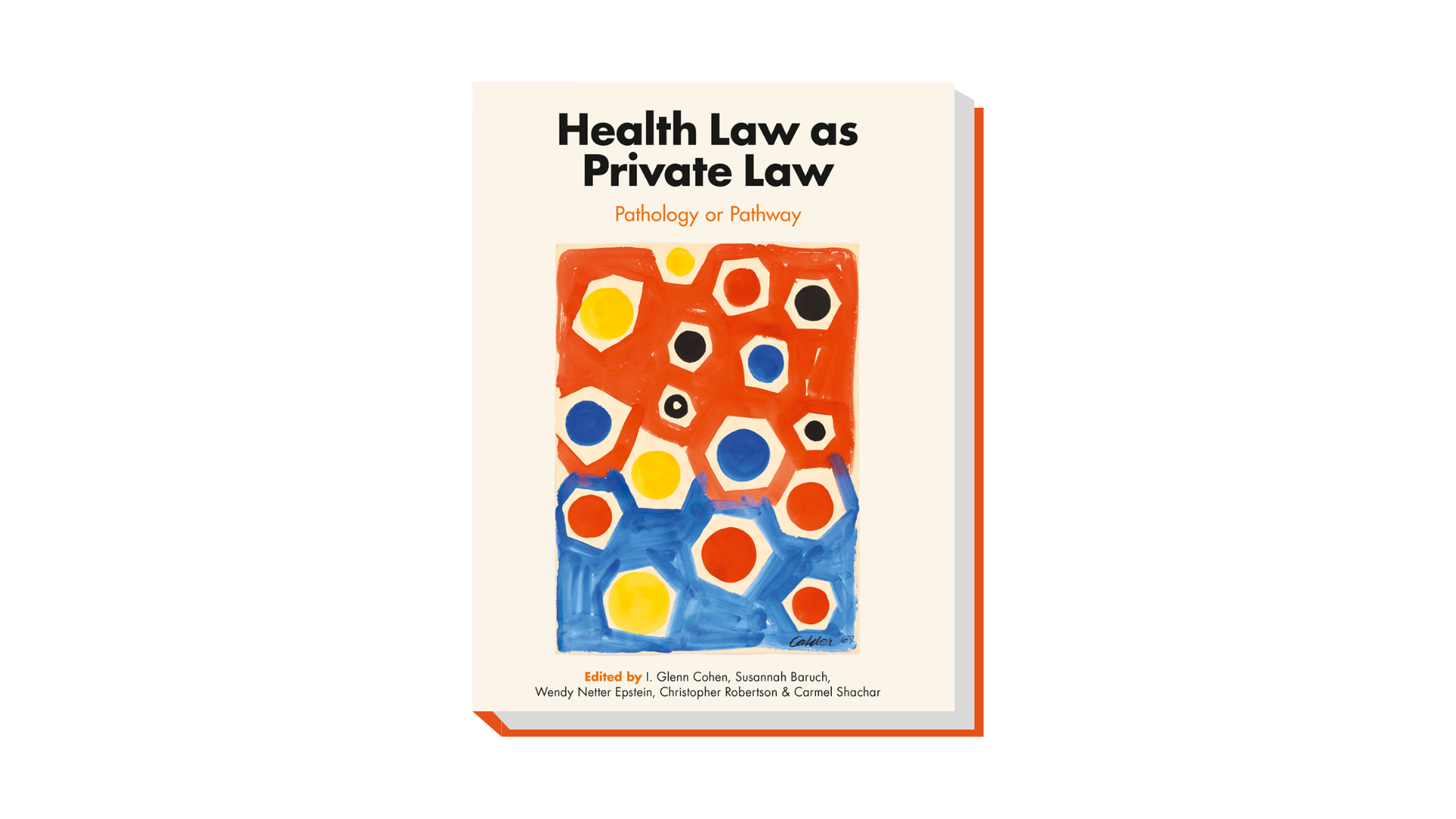Leadership at the intersection of health, ethics, technology, and law.

Upcoming
Featured

Health Law as Private Law: Pathology or Pathway
Our new edited volume grew from the Petrie-Flom Center’s 2023 annual conference. It explores the intersection of private law and health care, especially how private law (as opposed to government regulation) might be a tool for achieving health care reform or addressing a significant health care or public health problem. Chapters discuss private law theory and structure, reproductive care, costs and financing, innovation and institutions, and contracts and torts. I. Glenn Cohen, Susannah Baruch, Wendy Netter Epstein, Christopher Robertson, and Carmel Shachar edited the volume, which is available open access now.
Our Focus Areas
Latest
-
Current Newsletter
Our most recent newsletter Full newsletter archive
-
The “Food Wars” and the Courts
Concerns over ultra-processed foods (UPFs) and their responsibility for rising rates of chronic disease and obesity have been highlighted in the medical literature and in the popular press.

-
Plan, Safeguard, Care: An Ethical Framework for Health Care Institutions Responding to Immigrant Enforcement Actions
The Hastings Center’s Ethical Framework for Health Care Institutions Responding to Covid-19 (March 2020) established foundational duties for responding to a public health emergency. Building on recent work by Julie M. Linton and colleagues and Mark Kuczewski, we adapt The Hastings Center’s Covid-19 guidance to create a new practical ethical framework for responding to current…

-
Houston, Do We Have a Lawyer? The Legal Black Hole of Astronaut Health Care
It’s 2035. Halfway to Mars, a spacecraft’s chief medical officer collapses from a massive stroke. With Earth more than 50 million miles away, the crew scrambles for a telemedicine lifeline. Yet, amid this high-stakes emergency, questions remain: Who legally authorizes medical interventions? Whose medical license applies in outer space?

-
Dr. TikTok? The Impacts of Misinformation on Mental Health Self-Diagnosis
A study published on March 19 yet again confirmed the widespread nature of healthmisinformation. Looking specifically at claims about ADHD on TikTok, the study found that more than half of all claims in the videos lacked scientific accuracy.


Explore more from our blog
Latest episode of our podcast
Fireside Chat: I. Glenn Cohen and Rochelle Walensky
Professor Glenn Cohen, Faculty Director of the Petrie-Flom Center at Harvard Law School interviews Dr. Rochelle Walensky, 19th Director of the Centers for Disease Control and Prevention and Senior Academic Fellow at the Petrie-Flom Center. They discuss Dr. Walensky’s career as an infectious disease clinician focused on HIV/AIDS, her experience leading the CDC during COVID-19, and her reflections on public health infrastructure in the United States and internationally.






